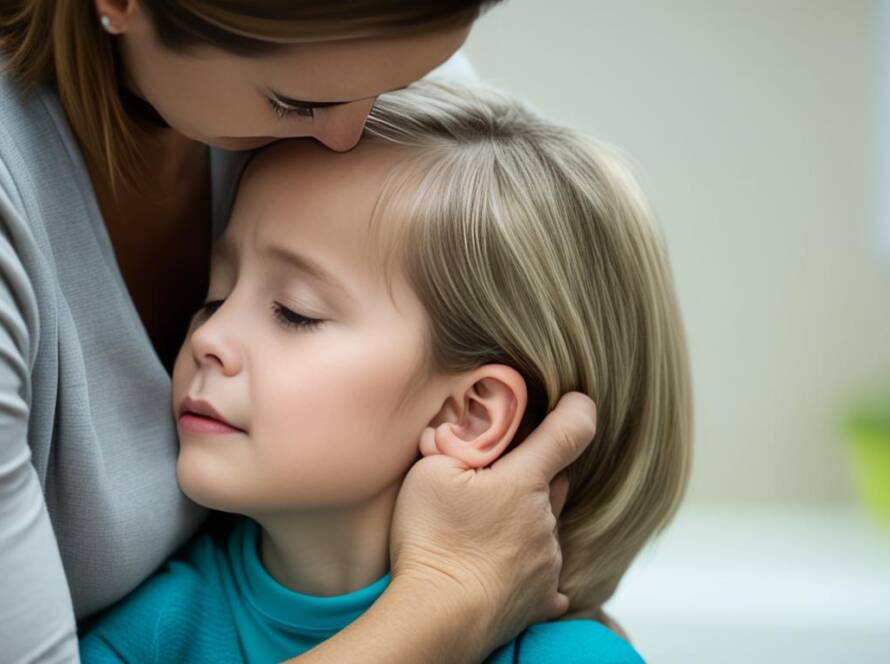Depression is a mental health disorder that affects people from all walks of life. It can be difficult to recognize, and its symptoms can vary from person to person. In this section, we will explore the various signs and symptoms associated with depression, including emotional, physical, and behavioral indicators. By understanding these signs, you can recognize the presence of depression and seek appropriate help and support.
Key Takeaways:
- Depression symptoms can vary from person to person.
- Recognizing emotional, physical, and behavioral indicators is crucial for identifying depression.
- Early detection and intervention can lead to effective treatment and improved mental well-being.
- Depression affects individuals of all ages, including adults.
- If you or someone you know is experiencing depression symptoms, seek appropriate help and support from a mental health professional.
Emotional Signs of Depression
Depression affects individuals in a variety of ways. While some may experience primarily physical symptoms, others may struggle with a range of emotional symptoms. Recognizing these emotional symptoms is critical in identifying depression.
Common emotional symptoms of depression include:
- Persistent sadness: A deep and ongoing feeling of sadness that persists throughout the day, over long periods of time.
- Feelings of emptiness: A sense of hollowness, as if nothing has any value or meaning.
- Loss of interest in once enjoyable activities: Losing interest in previously enjoyed activities or hobbies, and feeling apathetic or indifferent.
- Irritability: Feeling easily frustrated or annoyed, even about minor issues.
- A general sense of hopelessness: Feeling that things will never improve or that life has no purpose.
Depression is more than just experiencing occasional bad moods or a little downswing; it is a serious mental health condition that needs attention and care. Recognizing these sings is the first step towards identifying depression and getting the proper help and support.

Physical Signs of Depression
While depression is often associated with emotional symptoms, it can also lead to physical manifestations. Understanding the physical symptoms of depression is key to identifying the condition in oneself or a loved one. Some common physical symptoms of depression include fatigue, changes in appetite and weight, sleep disturbances, headaches, and backaches.
It is important to note that these symptoms may also be caused by other medical conditions, which is why it is crucial to speak with a healthcare professional for an accurate diagnosis. If you or a loved one are experiencing any of these physical symptoms coupled with other major depression symptoms or clinical depression symptoms, it is essential to seek help and support as soon as possible.
“Depression tends to cause physical symptoms such as tiredness, aches, and pains. These symptoms are real and may sometimes make the condition harder to recognize or treat.”
Behavioral Signs of Depression
Depression affects an individual’s behavior, contributing to a range of behavioral changes. Understanding these signs can be instrumental in identifying and addressing depression in its early stages.
- Social Withdrawal: People who experience depression often experience a desire to withdraw socially.
- Decreased Motivation: A lack of motivation is another common behavioral symptom of depression.
- Difficulty Concentrating: Depression can also affect an individual’s ability to focus and concentrate, resulting in difficulties at work or in school.
- Restlessness: People with depression may experience restlessness and agitation, as they struggle with their emotional state.
- Self-destructive Tendencies: In severe cases, depression can lead to self-destructive behaviors, such as substance abuse or self-harm.
Recognizing these signs is critical in identifying and managing depression.

“Depression is a common and treatable condition. It is often made worse if you are a member of a marginalized community. If you or someone you know is experiencing signs of depression, reach out for help and support.”
Signs of Depression in Adults
Depression is a pervasive mental health concern that can affect individuals of all ages, including adults. While many of the symptoms associated with depression are similar across all age groups, there are some unique signs that manifest in adults.
One of the most common symptoms of depression in adults is a feeling of overwhelming sadness or hopelessness. Adults with depression may also experience a loss of interest in activities they once enjoyed and have trouble motivating themselves to complete everyday tasks.
| Major Depression Symptoms in Adults | Clinical Depression Symptoms in Adults |
|---|---|
| Fatigue | Insomnia or excessive sleeping |
| Feelings of guilt or worthlessness | Difficulty concentrating |
| Changes in appetite and weight | Physical symptoms (headaches, backaches, etc.) |
Another symptom commonly seen in adults with depression is increased irritability or restlessness. This can lead to social withdrawal and difficulty in maintaining relationships or performing well at work.
It is essential to recognize these symptoms and seek appropriate help and support for adults experiencing depression. With the right diagnosis and treatment, depression can be successfully managed to improve overall mental well-being and enhance quality of life.
Conclusion
Depression can manifest itself in a variety of ways and impact people of all ages. It is essential to recognize the signs and symptoms associated with depression, including emotional, physical, and behavioral changes, to ensure early detection, diagnosis, and treatment. Seeking appropriate support can promote mental well-being and enhance overall quality of life. If you notice any of the common signs of depression, such as persistent sadness, fatigue, social withdrawal, or difficulty concentrating, seek help from a mental health professional who can develop a personalized treatment plan that meets your needs. Remember, taking care of your mental health is just as important as taking care of your physical health.
By understanding signs of depression and seeking appropriate support, you can overcome this mental health condition and live a fulfilling life. Don’t hesitate to reach out to a mental health professional if you’re experiencing any of the symptoms mentioned in this article. Remember, you’re not alone, and help is available.
Thank you for reading this article on depression symptoms and how to recognize them in adults. We hope this information has been helpful in promoting mental wellness and reducing the stigma surrounding depression.
FAQ
What are the signs of depression?
The signs of depression can vary from person to person, but common symptoms include persistent sadness, loss of interest in activities, changes in appetite and sleep patterns, fatigue, feelings of hopelessness, and difficulty concentrating.
How do I recognize major depression symptoms?
Major depression symptoms often include persistent feelings of sadness or emptiness, loss of interest or pleasure in activities, changes in appetite and sleep patterns, difficulty concentrating, feelings of guilt or worthlessness, and thoughts of self-harm or suicide.
What are some physical symptoms of depression?
Physical symptoms of depression can include fatigue, changes in appetite and weight, sleep disturbances, headaches, backaches, digestive issues, and unexplained pain.
How can I identify the emotional symptoms of depression?
Emotional symptoms of depression may include persistent sadness, feelings of emptiness, loss of interest in once enjoyable activities, anxiety, irritability, decreased energy, and a sense of hopelessness.
What are some common behavioral symptoms of depression?
Behavioral symptoms of depression can manifest as social withdrawal, decreased motivation, difficulty concentrating, restlessness, increase in substance abuse, self-isolation, and engaging in self-destructive behaviors.



